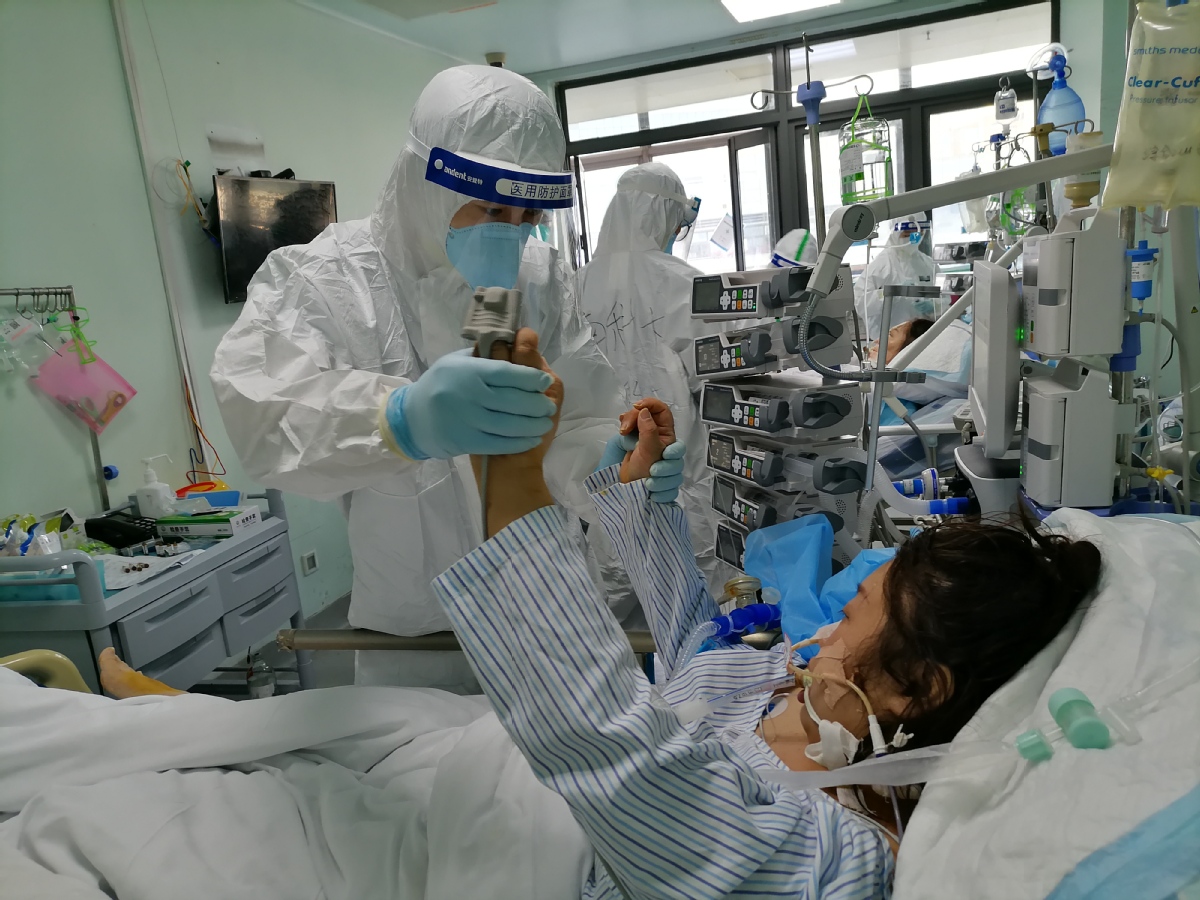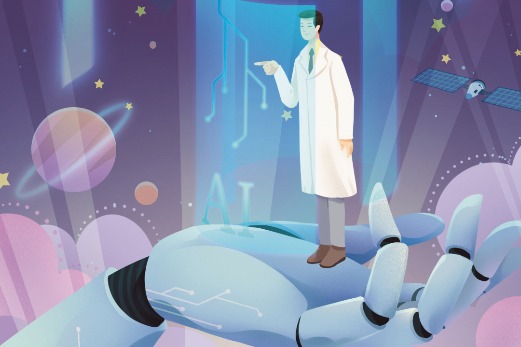ICU expert expresses pride in livesaving role
Leading physician uses long experience to treat seriously ill patients in South China. Li Bingcun reports from Hong Kong.


It was mid-February, and the battle against the novel coronavirus seemed to be at a stalemate.
Those were the worst days for Li Xu, a physician and intensive care unit specialist, during his ongoing assignment at the Third People's Hospital of Shenzhen, the only facility in the Guangdong province city designated to treat patients confirmed as having COVID-19.
"Though no new patients came in, existing patients were not improving. It was like the battle had reached a standstill," he said.
The morale of Li, 35, and his colleagues plummeted when two patients died in quick succession.
On Jan 31, Li was transferred to the Third People's Hospital from the University of Hong Kong-Shenzhen Hospital, another medical center in the city, tasked with treating the most severely ill patients.
A 36-year-old patient surnamed Hu was close to death. Large areas of her lungs were severely infected and she was being kept alive by a ventilator. Li was determined to save her life.
In late January, Hu had visited relatives in Wuhan, Hubei province, the city once regarded as the epicenter of the outbreak.
When she returned to Shenzhen she was already infected with the coronavirus, which took a heavy toll on her family as her husband, mother and 7-year-old daughter also became infected.
In time, they recovered and were discharged from the hospital, but Hu's condition deteriorated. She was intubated and placed under sedation for more than 10 days.
The medical team made several attempts via different approaches to treat her, but nothing worked.
The team was disappointed, because no treatment seemed to improve Hu's condition and she was likely to die. Li decided to bring Hu out of her sedated state and adjust the treatment according to her reactions.
It was a risky decision. After Hu regained consciousness, her breathing became more rapid, which could have affected the exchange of oxygen and carbon dioxide in her body. Many other serious complications were also likely.
The patient's mood fluctuated wildly and she had to be restrained from pulling the breathing tube out of her mouth. Li sat beside Hu and explained the situation to her, stressing that removing the tube could end her life.
Li encouraged her in the days that followed, telling her not to breathe too quickly, helping her adapt to the tube and exercising her arms and legs. He cured her diarrhea, improved her nutrition and arranged for her husband and daughter to cheer her up via a video call.
After many trials, Hu's condition gradually stabilized and the tube was removed on Feb 23. That was four days after Li took charge of her case.
She showed signs of returning to good health and was later transferred to a general ward. A senior doctor told Li that Hu's recovery had lifted the morale of all the medical teams at the hospital.
Hu also credited Li with her recovery. She talked about the heavy blow to her and her family, and how her plans had been upended. She said that she had survived thanks to the encouragement of doctors and family members and she knew she would be discharged soon.
























